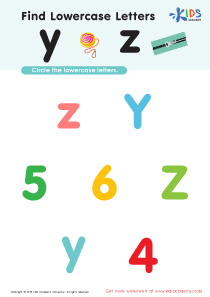Alphabet Recognition Normal Uppercase Letters Worksheets for Ages 3-4
10 filtered results
-
From - To
Introduce your little ones to the world of letters with our engaging Alphabet Recognition Normal Uppercase Letters Worksheets, perfect for ages 3-4! These worksheets are designed to make learning fun and interactive, helping preschoolers recognize and identify uppercase letters effectively. Each activity promotes essential skills such as letter formation, visual discrimination, and vocabulary building through colorful illustrations and playful exercises. With a variety of tracing, matching, and coloring tasks, these worksheets encourage children to develop fine motor skills while mastering the alphabet. Turn learning into an exciting adventure and set the foundation for future literacy success with our specially crafted worksheets!
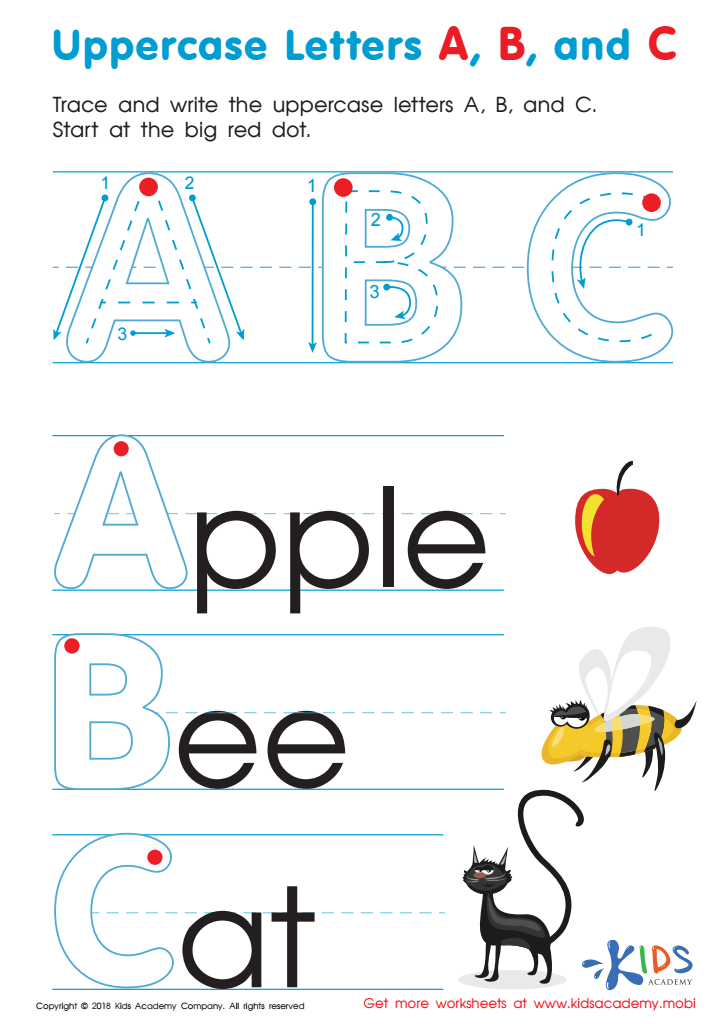

Uppercase Letters A, B, and C Worksheet
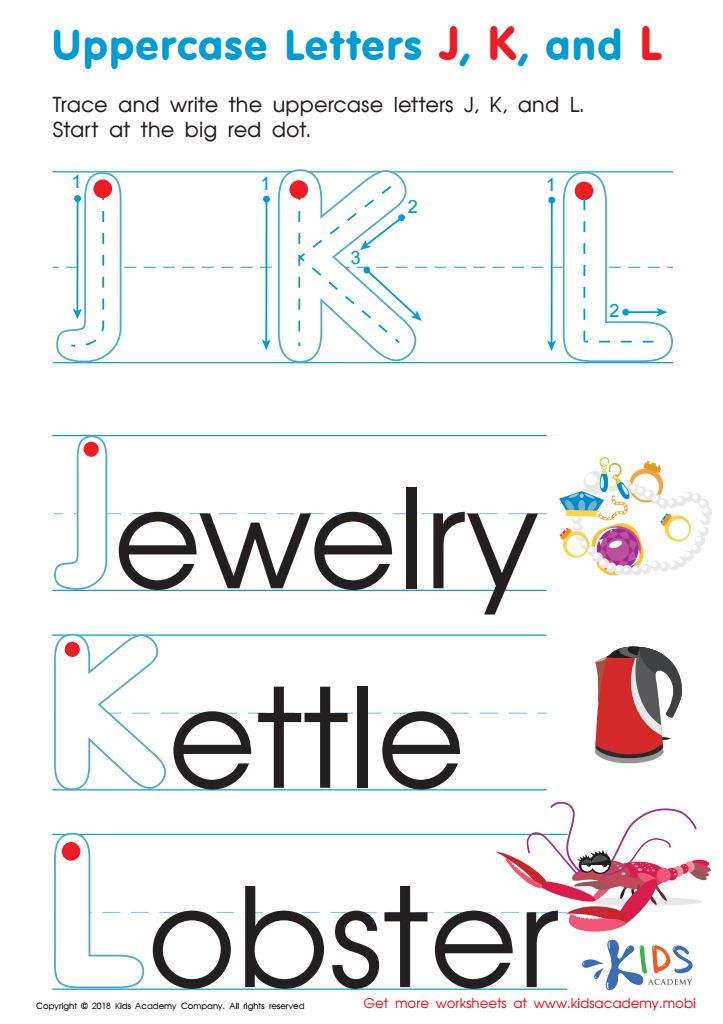

Uppercase Letters J, K, and L Worksheet
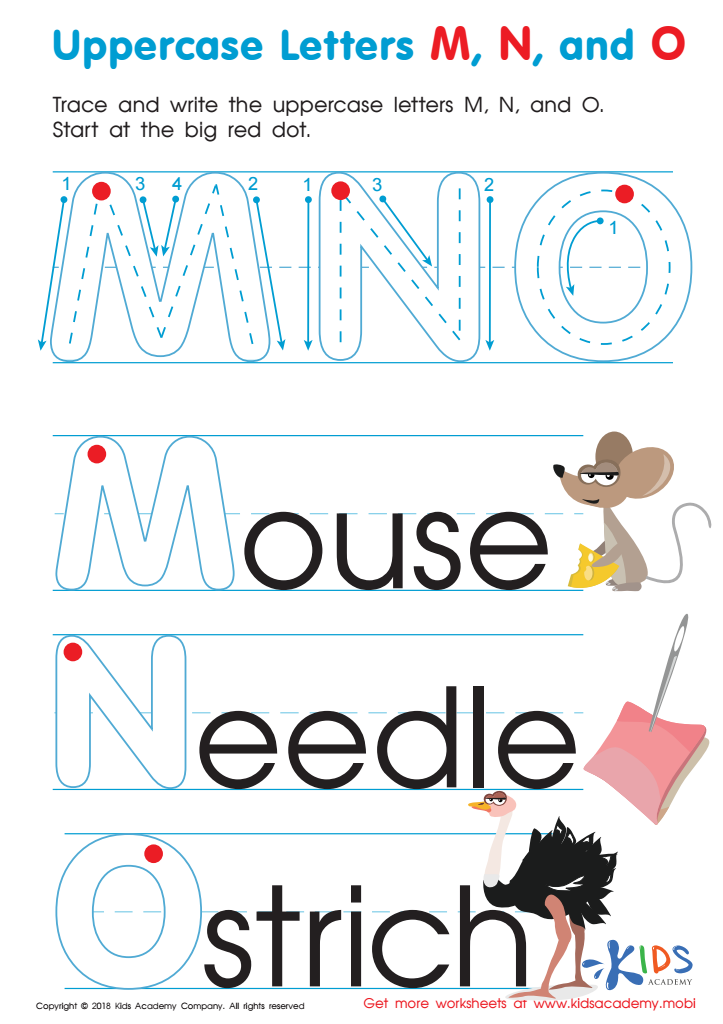

Uppercase Letters M, N, and O Worksheet
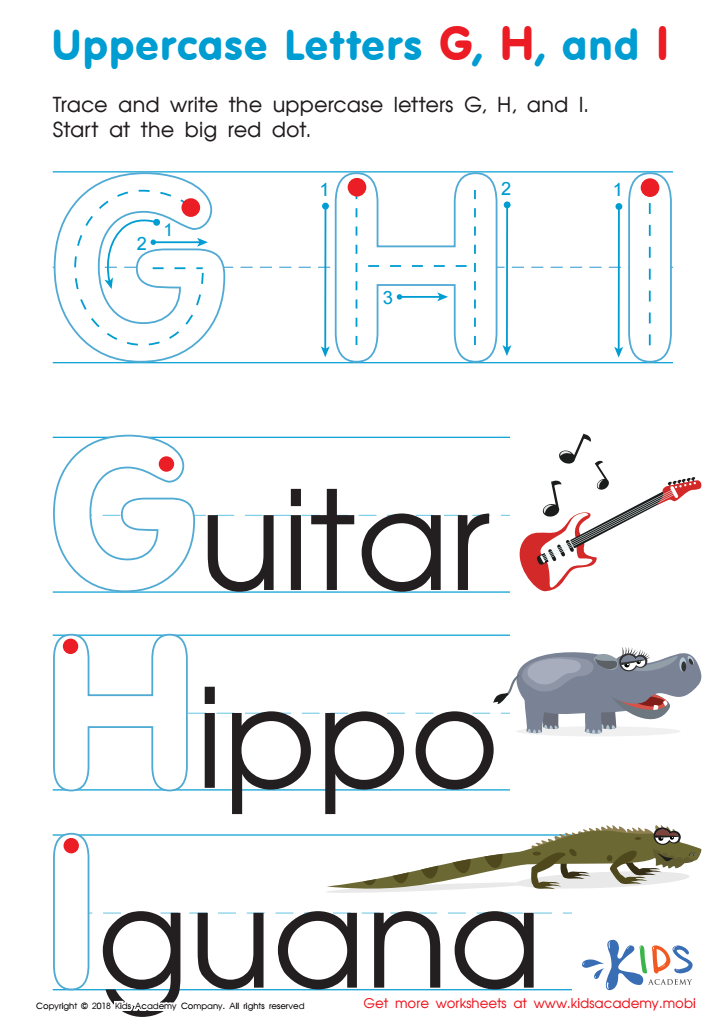

Uppercase Letters G, H, and I Worksheet
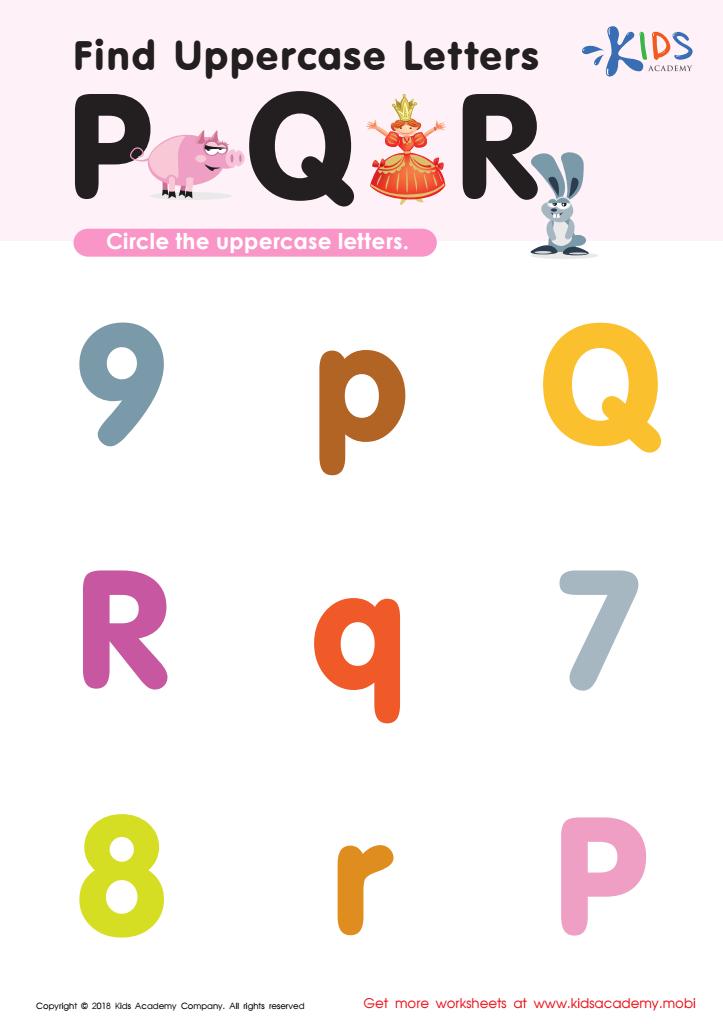

Find Uppercase Letters P, Q, and R Worksheet
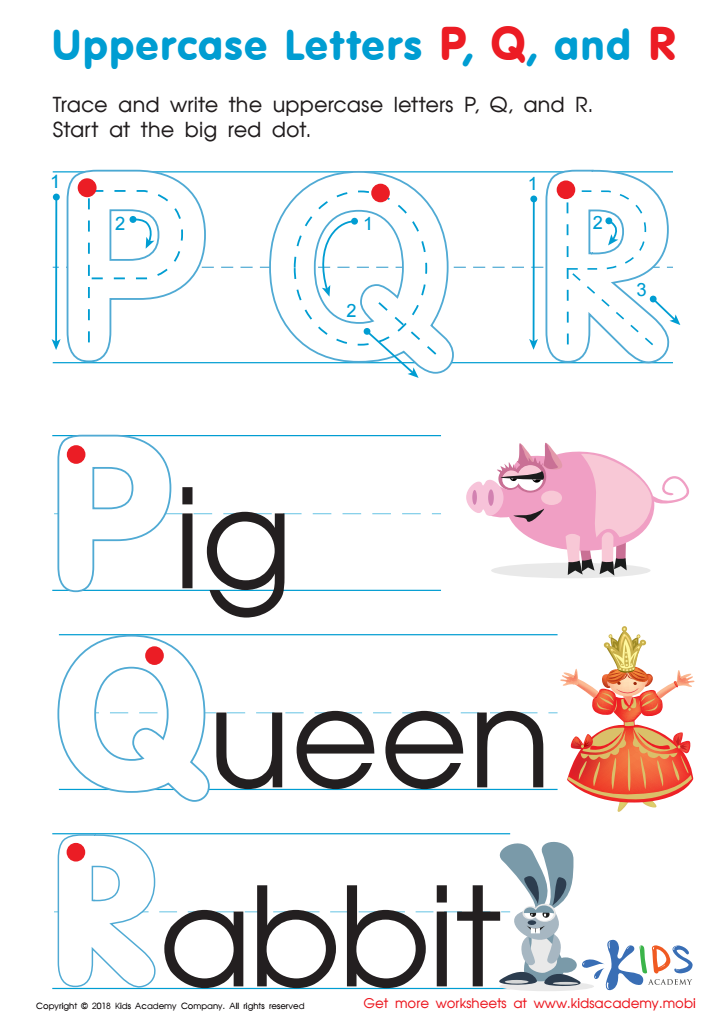

Uppercase Letters P, Q, and R Worksheet
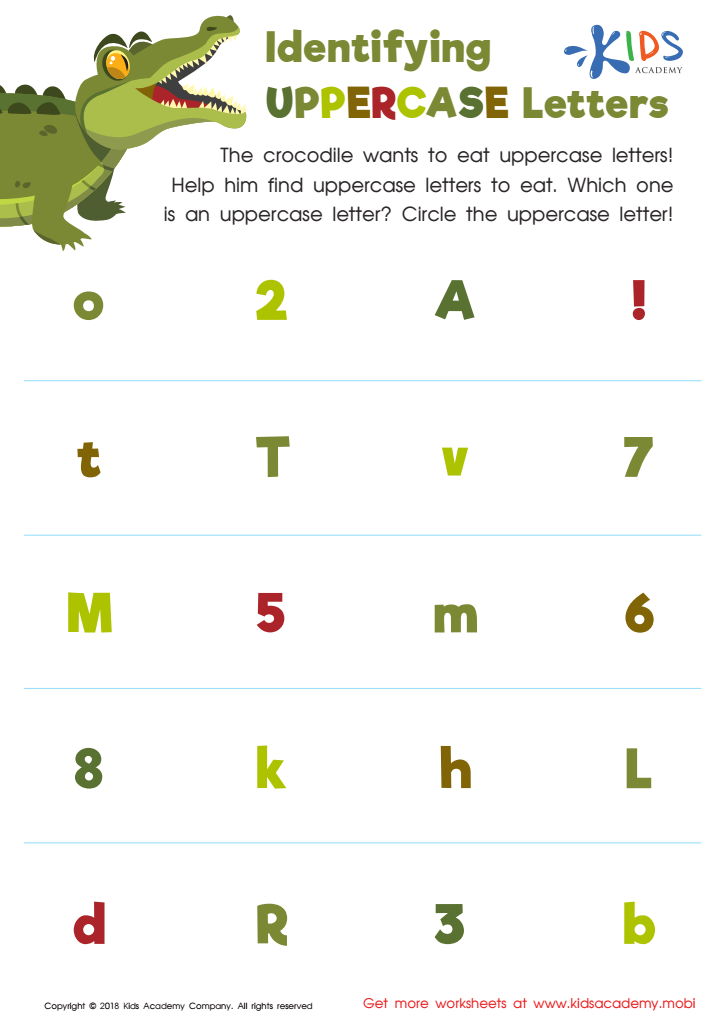

Identifying Uppercase Letters Worksheet
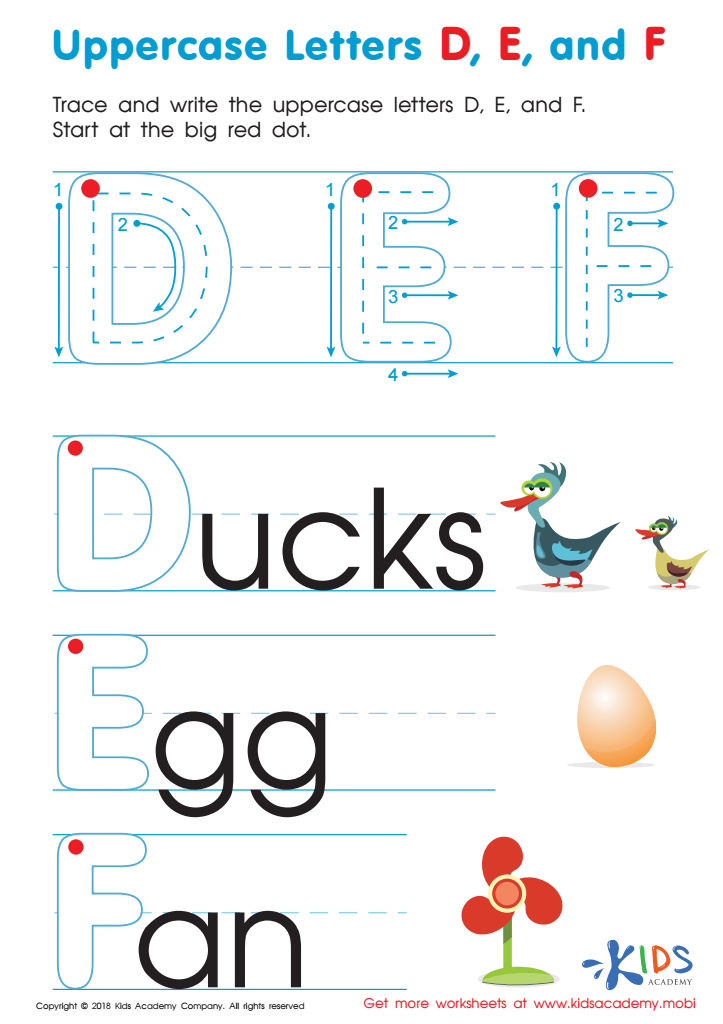

Uppercase Letters D, E, and F Worksheet
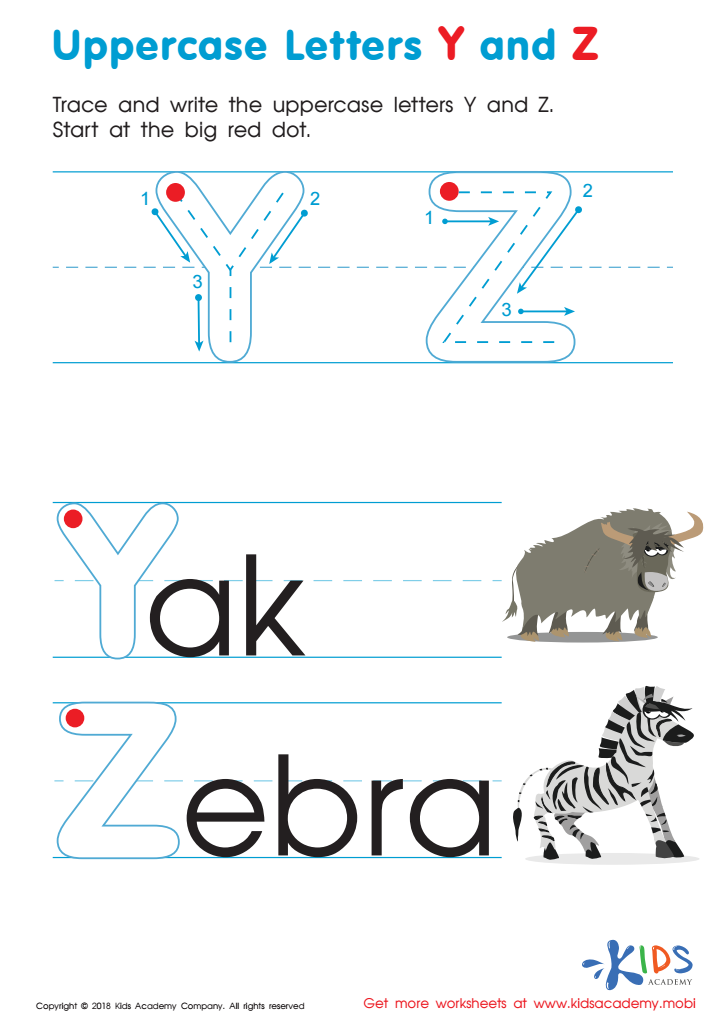

Uppercase Letters Y Z Worksheet
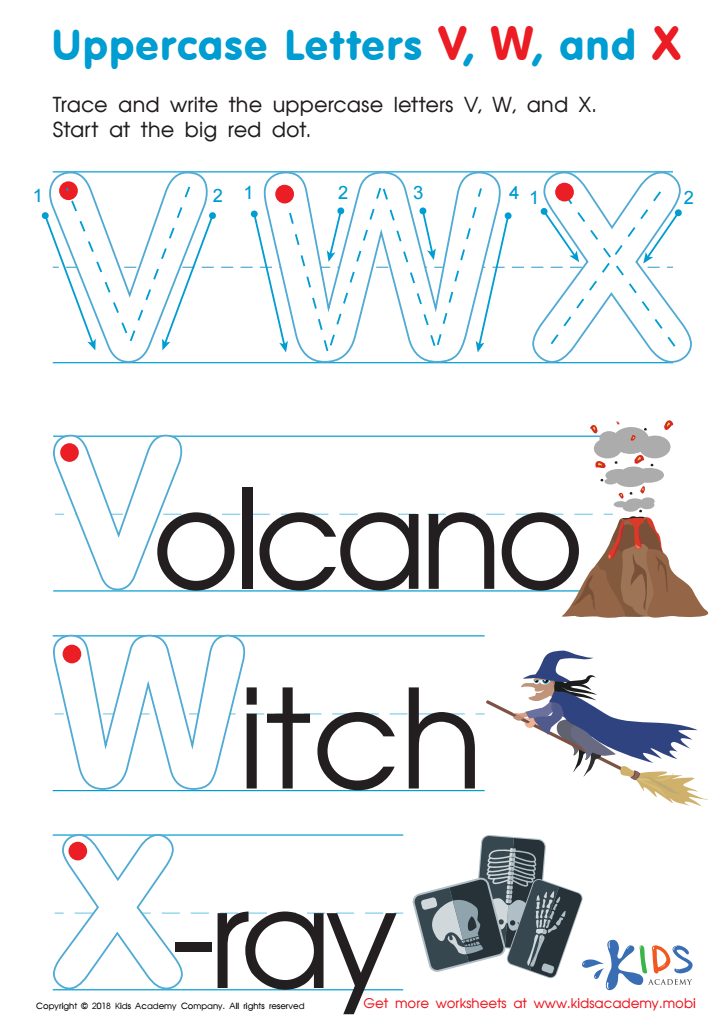

Uppercase Letters V, W, and X Worksheet
Alphabet recognition, particularly for uppercase letters, is a foundational skill that significantly impacts early literacy development in children ages 3-4. Parents and teachers should prioritize this learning aspect as it lays the groundwork for future reading and writing abilities. Recognizing uppercase letters helps children understand the alphabet as a system of symbols representing sounds. This understanding is crucial when they begin to decode words later on.
Moreover, uppercase letters are often more visually distinctive because of their straight lines and bold shapes, making them easier for young learners to identify. Engaging with these letters boosts cognitive skills, hand-eye coordination, and memory as children learn through play, songs, and interactive activities.
Fostering this skill at an early age can instill confidence in learners, encouraging them to explore reading-related activities with enthusiasm later. Additionally, uppercase letters appear frequently in their environment, such as in signs or logos, providing ample opportunities for recognition and application of their knowledge in real-life situations.
Overall, taking an active role in promoting uppercase letter recognition supports a child's literacy journey, fostering essential skills that will benefit them throughout their educational experience and in everyday life.
 Assign to My Students
Assign to My Students









